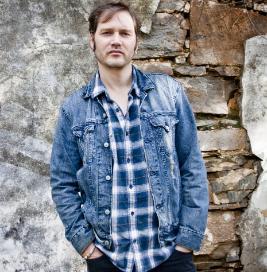
Senior varsity staff question whether transformation genuine or just for show HILE some academics in the Eastern Cape believe transformation at universities is nothing but "window dressing", others feel the different institutions are trying, if not always succeeding. Nelson Mandela Metropolitan University Associate Professor Simphiwe Sesanti said it was an inadequate exercise to appoint more black people in educational institutions whose culture, in terms of curriculum content, was Eurocentric.
"The first task is to make the content African, in terms of orientation. "That is something that is not yet understood by many black academics, and resisted by Eurocentric academics who occupy strategic positions. "So, for me, the problem is less about the number of black academics in institutions of higher learning, but more about the content we bring in. "We have an obligation not only to de-Westernise but to Africanise institutions of higher learning." A white University of Fort Hare (UFH) professor, who did not want to be named, said that there "is a huge amount of window dressing". "Most of the black academics are from other African countries, few are South Africans . . . so in a sense there is no real transformation."
On racial and gender transformation, he said "there was no real strategy" at Fort Hare and staff were "muddling through the process". "The problem is that we are running from crisis to crisis resulting from poor management in general. "Transformation is a hierarchy of needs, but it is not a priority for most academics whose focus is on education and making sure exam marks meet expectations." The professor said the staff from other African countries "fit in well". "The average master's student from elsewhere in Africa ... their end game is to get a permit to stay in SA and working in academia is one way of achieving this. They battle to find other jobs in SA, so they teach at a college or university."
The professor said colleagues had resigned themselves to transformation being a necessity. Those who had to mentor black or female staff, at the risk of losing out on a promotion, accepted it. Rhodes University's Dr Richard Pithouse said being an academic was a position of privilege and responsibility. "However, worldwide, the corporatisation of universities is rapidly turning being an academic into little more than being in a poorly paid job in which people are exploited and subordinated to overbearing bureaucrats with little concern other than money. "The corporatisation of universities and the increasing dependence on poorly paid junior staff make them an increasingly unattractive place for young people to work.
"The corporatisation process also creates mini-empires ... some ruled by people who are themselves exploitative and abusive. "All of this is compounded by the fact that some of our universities, like Rhodes, have not broken with their colonial history and are systemically hostile to black people.
"Discourses like liberalism, human rights and feminism are often mobilised in such a way that white domination is re-inscribed in the name of a progressive project." The outspoken Pithouse said different universities were approaching transformation very differently and there were people at Rhodes who were serious about it. "I have great respect for our current vicechanceller [Dr Sizwe Mabizela]. "The university is now putting real pressure on departments to employ black candidates.
"As I understand it, this is in response to the pressure from the state. However, transformation should be a much broader project that includes, for instance, the decolonisation of curricula and research. I don't think that, on balance, the institution as a whole is at all serious about that. "In fact, it is clear that the collegial practices at Rhodes consistently reinforce white domination and will continue to do so.
"It is also clear that there is a significant degree to which the transformation project itself has often been captured by white people and this is very unfortunate." An NMMU doctoral candidate from Nigeria, who has been studying at the institution for three years, said as part of its transformative goals the university ensured that South African citizens were given first priority when opportunities arose. And he added: "That is absolutely fair considering the history of the country.
One of the key issues that the university focuses on is diversity and inclusion especially for the previously disadvantaged. "However, transformation is not happening as fast as many expect in because it is very complex. "From the looks of things, it seems that the university is struggling to attract enough black South African candidates who will be interested in post-graduate studies. "I consider this a dire need in the system because many present academics should be retiring in the next decade or so.
"So, for the much-desired transformation to happen, more black citizens need to take up the opportunity to undergo post-graduate studies, especially because there is a myriad of funding opportunities that the government and other bodies have made available to SA citizens that are not available to students from outside."
By Thulani Gqirana
Source: Weekend Post
